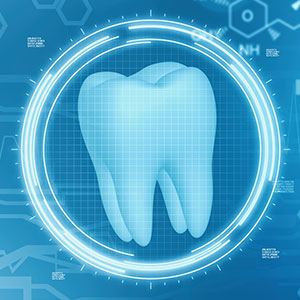"Tooth, Heal Thyself" May Soon Be a Reality


Although dental care has made incredible advances over the last century, the underlying approach to treating tooth decay has changed little. Today’s dentists treat a decayed tooth in much the same way as their counterparts from the early 20th Century: remove all decayed structure, prepare the tooth and fill the cavity.
Dentists still use that approach not only because of its effectiveness, but also because no other alternative has emerged to match it. But that may change in the not-too-distant future according to recent research.
A research team at Kings College, London has found that a drug called Tideglusib, used for treating Alzheimer’s disease, appears to also stimulate teeth to regrow some of its structure. The drug seemed to cause stem cells to produce dentin, one of the tooth’s main structural layers.
During experimentation, the researchers drilled holes in mouse teeth. They then placed within the holes tiny sponges soaked with Tideglusib. They found that within a matter of weeks the holes had filled with dentin produced by the teeth themselves.
Dentin regeneration isn’t a new phenomenon, but other occurrences of regrowth have only produced it in tiny amounts. The Kings College research, though, gives rise to the hope that stem cell stimulation could produce dentin on a much larger scale. If that proves out, our teeth may be able to create restorations by “filling themselves” that are much more durable and with possibly fewer complications.
As with any medical breakthrough, the practical application for this new discovery may be several years away. But because the medication responsible for dentin regeneration in these experiments with mouse teeth is already available and in use, the process toward an application with dental patients could be relatively short.
If so, a new biological approach to treating tooth decay may one day replace the time-tested filling method we currently use. One day, you won’t need a filling from a dentist—your teeth may do it for you.
If you would like more information on treating tooth decay, please contact us or schedule an appointment for a consultation.